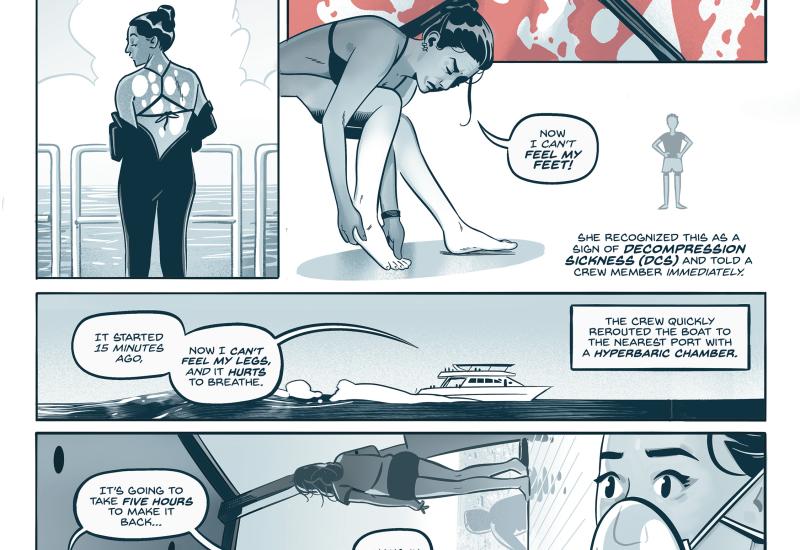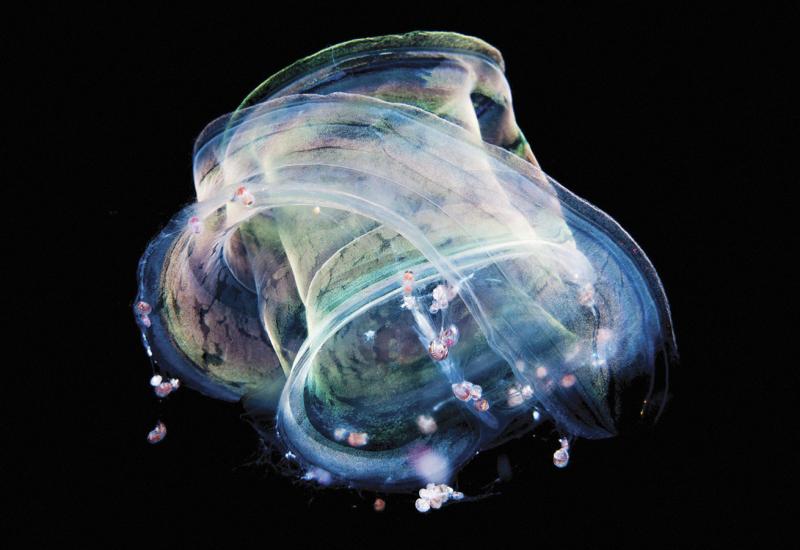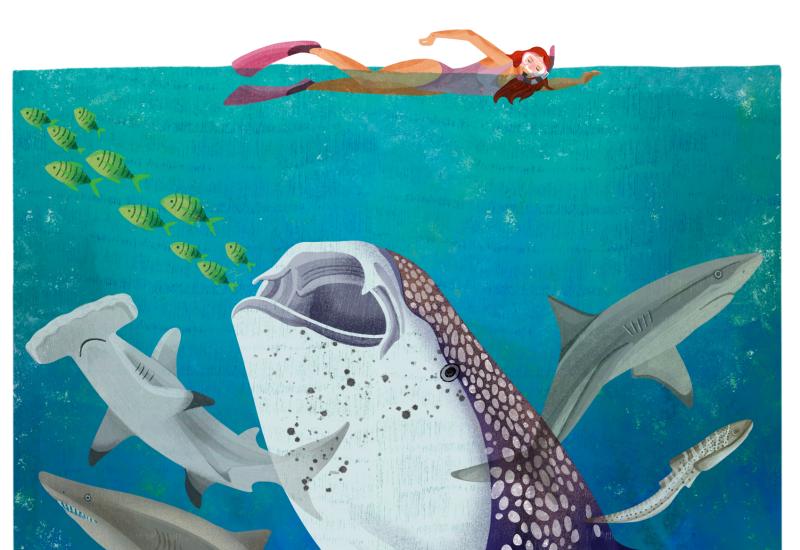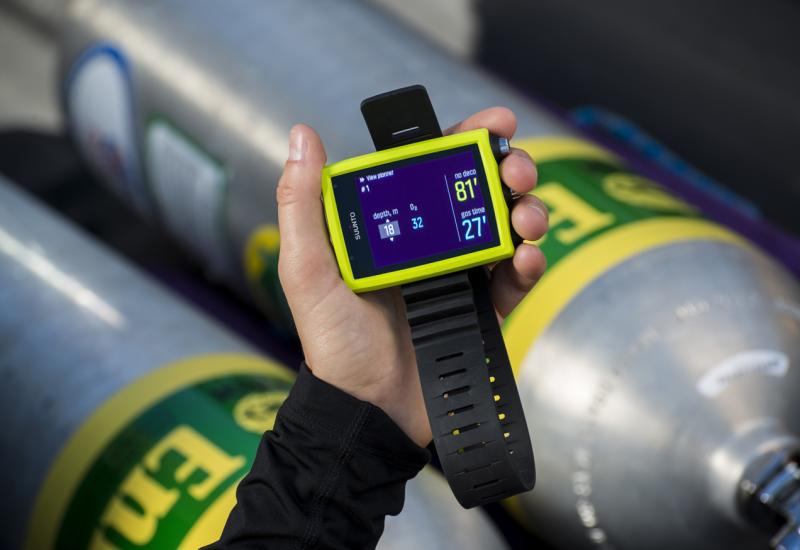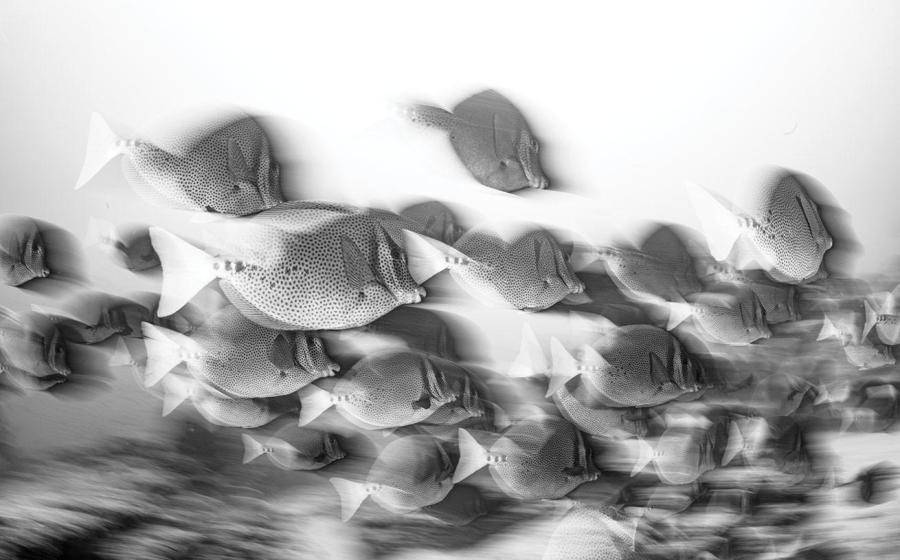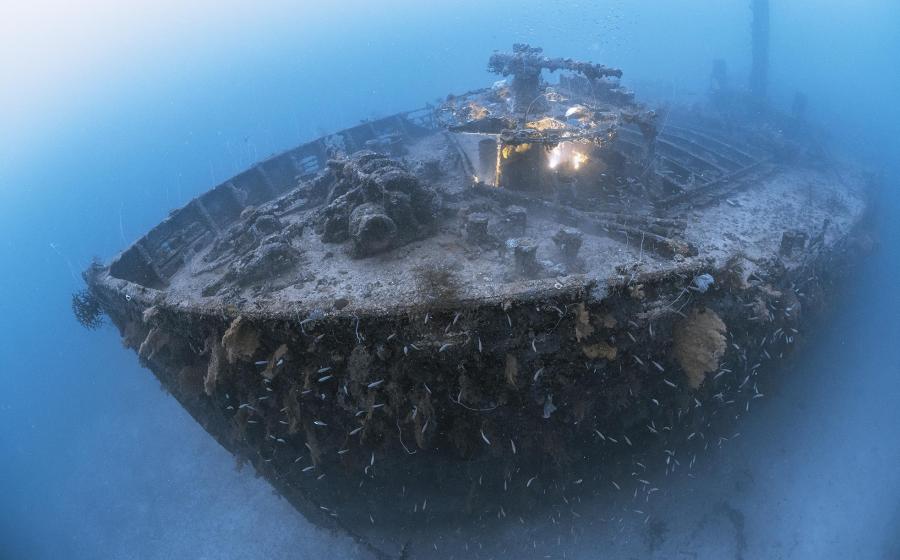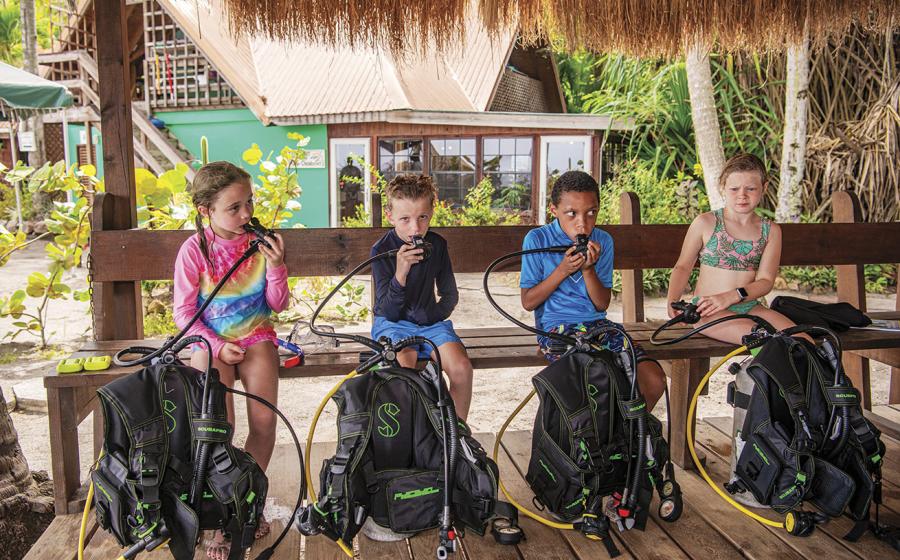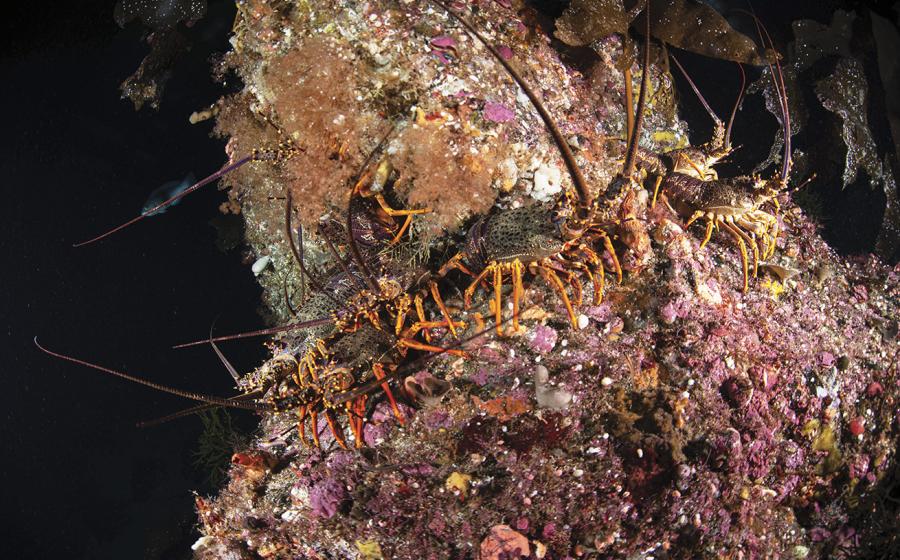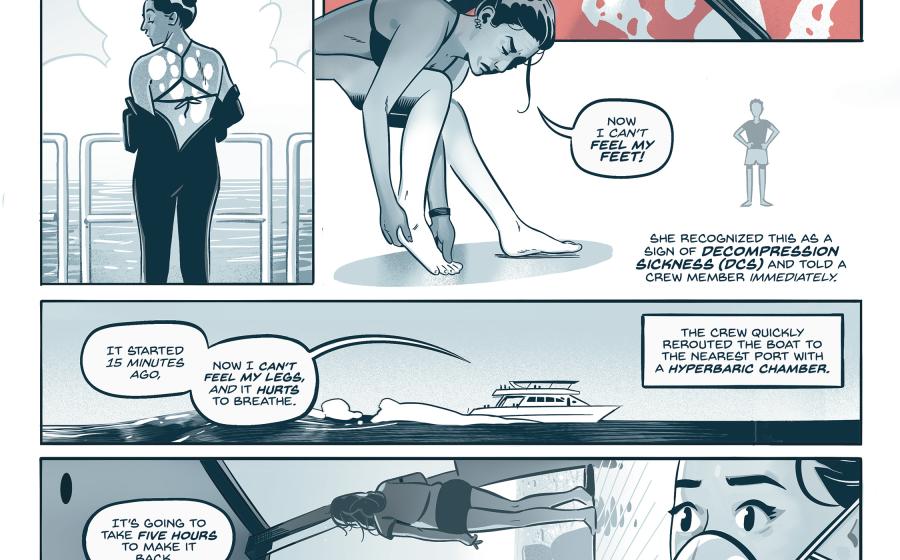What It’s Like to Be an Aquarium Dive Safety Officer
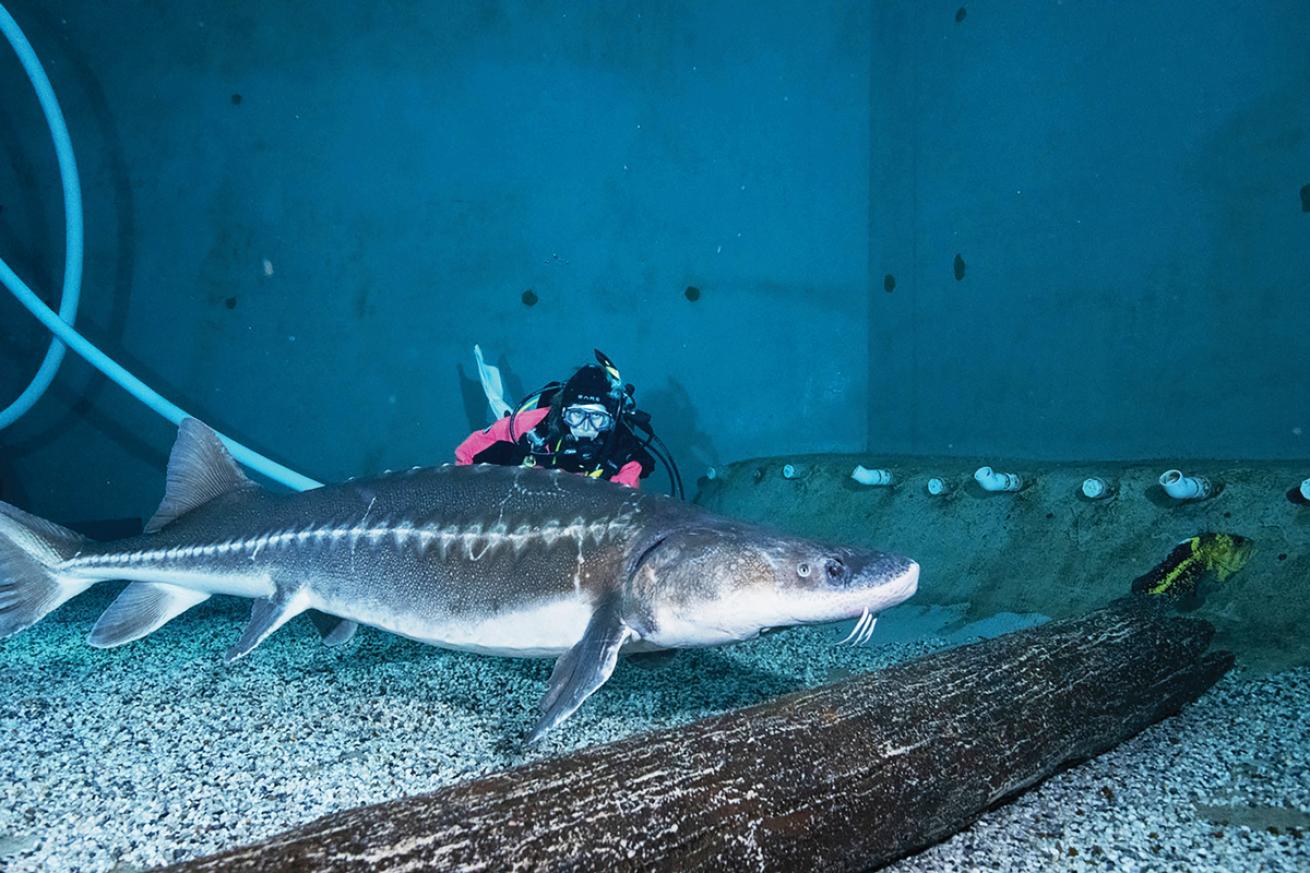
Frederick BatsonA diver at the Oregon Coast Aquarium observes a sturgeon on exhibit.
As a dive safety officer (DSO) for the Oregon Coast Aquarium, Doug Batson has done everything from guiding guest divers in an open-ocean shark tank to shuttling pieces of blue whale carcass to the bottom of Oregon’s Yaquina Bay for science. Batson started diving while he was in high school. He grew up in Eugene, Oregon, less than 100 miles from where he lives and works today in Newport.
“My dad got me into diving when I was 14, and we would do dive trips together,” he says. “Usually, we’d dive the jetties on the Oregon coast to catch crab, or go up to the Hood Canal in Washington, and occasionally we’d take trips to the Channel Islands or up to Canada.”
At first glance, a DSO job for an aquarium may appear to be all aquarium, all the time. But Batson says overseeing divers who help clean the exhibits and feed the animals is just one part of the job. “I do oversee our crew of volunteer divers who help out with the exhibits, I run our guest diver program where people can pay to make recreational dives in our larger exhibits, and I’m responsible for all the dive training and equipment maintenance,” he explains.
“We also do a lot of work in the field,” he adds. “The Oregon Coast Aquarium has its own boat, and we have contracts with organizations like the Oregon Department of Fish and Wildlife and the Oregon Kelp Alliance to help with conservation research along the coast.”
Field projects involve logging lots of bottom time in Oregon’s five marine reserves to conduct surveys of habitats and marine life. “We’ll use DPVs for long-distance surveys to get a picture of kelp along the coastline,” he says, “or we’ll go down with slates and transect tapes to catalog invertebrates and fish.”
Related Reading: Exploring the Underwater Splendors of Oregon
Batson says he landed his job largely through persistence. He started as a volunteer diver at the aquarium when he was still in high school and kept adding skills and certifications over the years. “After college, I took a scientific diver course through the aquarium, and that gave me my first introduction into the wider world of scientific diving and the role of the dive officer in that industry.”
He suggests that anyone interested in working as a DSO build their skills and certification level while getting real-world experience in the water. “You generally need to be an instructor to become a dive officer, so working toward divemaster certification and helping with open-water classes is a good start, along with getting an AAUS scientific diver certification,” he says.
“A lot of aquariums have volunteer dive programs, internships and seasonal positions, which are great ways to get a foot in the door.”
According to Batson, this job is where you can always expect the unexpected. “The single strangest thing I’ve done in my career was about six years ago when a dead juvenile blue whale washed up on the Oregon coast, and researchers wanted the skeleton for educational value,” he says.
Related Reading: How Becoming a Dive Pro Changed My Life
“They took the whale apart and packed its parts into nearly 20 mesh bags—including a mandible the size of a Volkswagen bus! Then we helped anchor the bags in Yaquina Bay so marine life could strip the tissue, and we recovered everything a few years later,” he adds.
“Some days it’s blue whale bones, some days its writing dive-safety policies, and others I’m just trying to figure out how to attach a Santa hat to a full-face mask for a presentation.”
Job Requirements
Degree: Biology, Ecology, Environmental Studies.
Salary: Around $60,000 per year, depending on the facility, program size and other factors.
Certifications: Divemaster, Instructor, AAUS Scientific Diver, Full Face Mask Diver.

